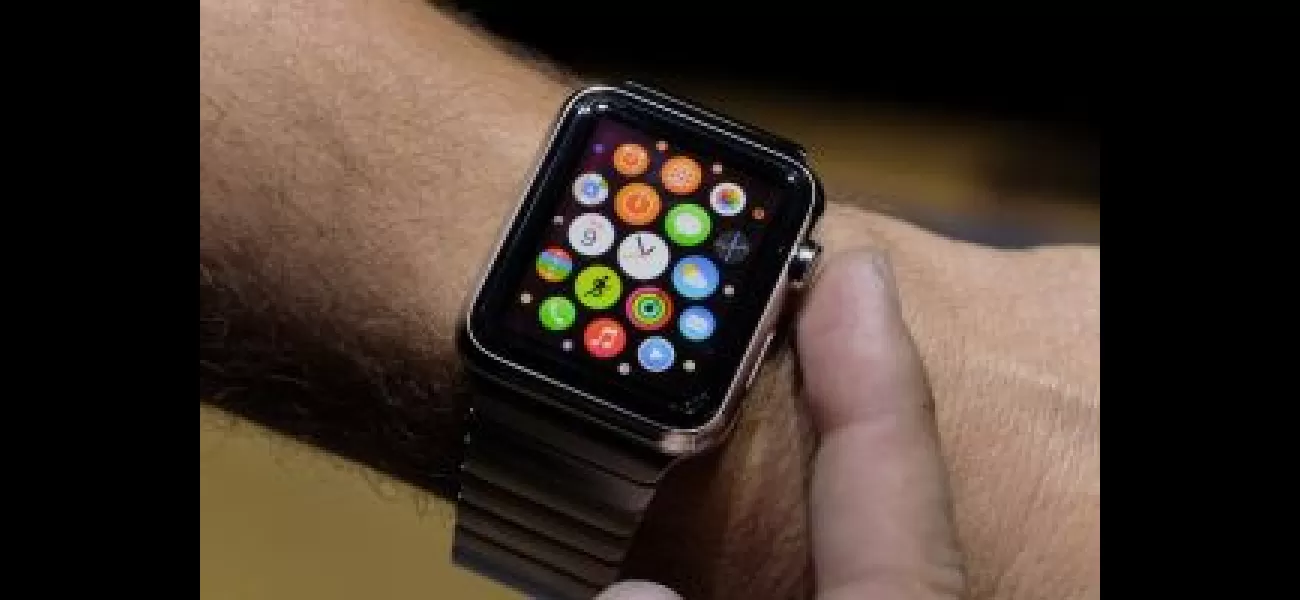Experts warn that wearable gadgets such as smartwatches can lead to anxiety.
Experts warn that constantly checking fitness trackers to meet step or calorie goals can cause anxiety, as wearable devices become increasingly popular among young people.
August 10th 2024.

In today's world, where staying fit and healthy is of utmost importance, it is not uncommon to see people constantly checking their smartwatches to meet their fitness goals. However, experts have warned that this behavior can actually lead to anxiety and other negative effects.
Wearable devices, especially those with medical-grade technology, have become increasingly popular, particularly among the younger generation who are eager to keep track of their health. While taking care of one's body is a noble thing to do, taking it to extreme levels can be counterproductive, as Oscar Wilde once said, "Whenever a man does a thoroughly stupid thing, it is always from a noble motive."
A recent study published in the Journal of the American Heart Association revealed that patients with irregular heartbeat or atrial fibrillation used wearable devices. The study, which was published on July 16, 2024, showed that wearable users were more likely to monitor their symptoms, become preoccupied with their health, and have increased concerns about their treatment.
In fact, the study found that 20% of wearable users experienced anxiety, causing them to contact their doctors due to notifications of irregular heart rhythms. As a result, these individuals underwent more tests such as ECGs, echocardiograms, transesophageal echocardiograms, and AF ablation.
Popular wearable devices like the Apple Watch and Fitbit have become go-to options for health monitoring. However, they can also cause anxiety in users due to the overwhelming amount of information they provide. Many people lack the knowledge or perspective to accurately interpret this data.
Vinayak Agrawal, Senior Director and Head of Non-Invasive Cardiology at Fortis Memorial Research Institute, stated, "Wearable devices, while attractive for monitoring our health, can also be a source of increased anxiety for some users. The use of medical-grade devices like the Apple Watch and Fitbit has become a trend, especially among the younger generation who want to know everything, without realizing the negative effects of this unfiltered information. Most individuals do not have the knowledge or perspective to interpret the data provided by these devices."
One of the common concerns among users is heart rate variability, which can lead to panic reactions and even high blood pressure. This can cause some users to experience panic attacks, leading them to seek medical advice or undergo emergency procedures like ECGs, echocardiograms, Holter monitoring, and CT coronary angiograms. This can also result in hypochondriac-like behaviors.
Agrawal further explained, "The most common query is about extreme heart rate variability. Users may become anxious about having a low heart rate or a heart rate of 150 beats per minute and worry about having a stroke or heart failure. These panic reactions are common among those who are hypersensitive about their health. This can lead to high blood pressure and heart rate readings, eventually causing them to seek medical attention and undergo additional tests like ECGs, echocardiograms, Holter monitoring, and CT coronary angiograms."
It is important to note that wearable devices are not inherently wrong, but their excessive use can be harmful. Knowledge should also have perspective, and it is important to be cautious and seek expert advice when necessary. As the experts warn, moderation is key when it comes to using wearable devices for health monitoring.
Wearable devices, especially those with medical-grade technology, have become increasingly popular, particularly among the younger generation who are eager to keep track of their health. While taking care of one's body is a noble thing to do, taking it to extreme levels can be counterproductive, as Oscar Wilde once said, "Whenever a man does a thoroughly stupid thing, it is always from a noble motive."
A recent study published in the Journal of the American Heart Association revealed that patients with irregular heartbeat or atrial fibrillation used wearable devices. The study, which was published on July 16, 2024, showed that wearable users were more likely to monitor their symptoms, become preoccupied with their health, and have increased concerns about their treatment.
In fact, the study found that 20% of wearable users experienced anxiety, causing them to contact their doctors due to notifications of irregular heart rhythms. As a result, these individuals underwent more tests such as ECGs, echocardiograms, transesophageal echocardiograms, and AF ablation.
Popular wearable devices like the Apple Watch and Fitbit have become go-to options for health monitoring. However, they can also cause anxiety in users due to the overwhelming amount of information they provide. Many people lack the knowledge or perspective to accurately interpret this data.
Vinayak Agrawal, Senior Director and Head of Non-Invasive Cardiology at Fortis Memorial Research Institute, stated, "Wearable devices, while attractive for monitoring our health, can also be a source of increased anxiety for some users. The use of medical-grade devices like the Apple Watch and Fitbit has become a trend, especially among the younger generation who want to know everything, without realizing the negative effects of this unfiltered information. Most individuals do not have the knowledge or perspective to interpret the data provided by these devices."
One of the common concerns among users is heart rate variability, which can lead to panic reactions and even high blood pressure. This can cause some users to experience panic attacks, leading them to seek medical advice or undergo emergency procedures like ECGs, echocardiograms, Holter monitoring, and CT coronary angiograms. This can also result in hypochondriac-like behaviors.
Agrawal further explained, "The most common query is about extreme heart rate variability. Users may become anxious about having a low heart rate or a heart rate of 150 beats per minute and worry about having a stroke or heart failure. These panic reactions are common among those who are hypersensitive about their health. This can lead to high blood pressure and heart rate readings, eventually causing them to seek medical attention and undergo additional tests like ECGs, echocardiograms, Holter monitoring, and CT coronary angiograms."
It is important to note that wearable devices are not inherently wrong, but their excessive use can be harmful. Knowledge should also have perspective, and it is important to be cautious and seek expert advice when necessary. As the experts warn, moderation is key when it comes to using wearable devices for health monitoring.
[This article has been trending online recently and has been generated with AI. Your feed is customized.]
[Generative AI is experimental.]
0
0
Submit Comment





